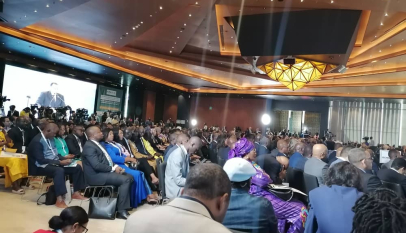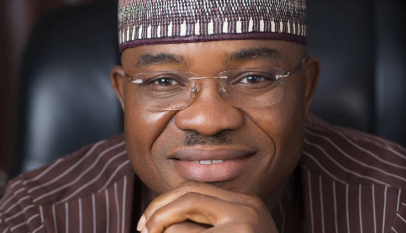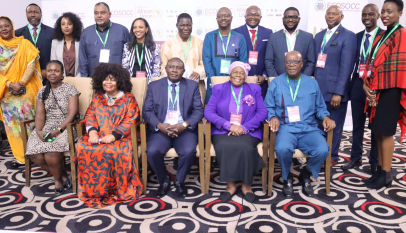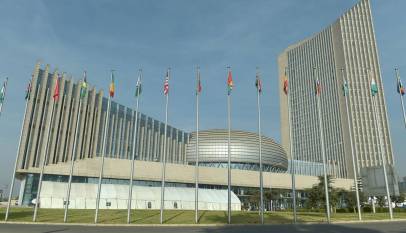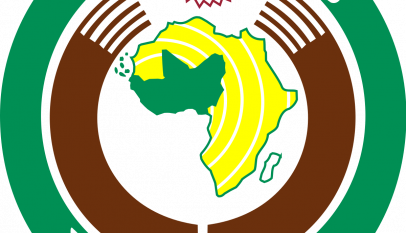2020 Africa Industrialization Week explores industry-trade nexus in the AfCFTA era
Building a resilient and self-reliant Africa is one of the key objectives of Agenda 2063, hence the continent is anxiously awaiting the first day of free trade under the Africa Continental Free Trade Area (AfCFTA), January 1, 2021. Ahead of that auspicious day, between 16 and 20 November, the African Union Commission (AUC) and partners will be hosting the 3rd annual Africa Industrialization Week (AIW 2020), under the theme: “Inclusive and Sustainable Industrialisation in the AfCFTA Era.”

AIW 2020 seeks to reinforce the industry-trade nexus in the context of the business opportunities presented by the forthcoming commencement of trade under the Africa Continental Free Trade Area (AfCFTA). Since July 2019, when the operational phase of the AfCFTA was launched, in Niamey, Niger, the AfCFTA Agreement had been ratified by not less than 30 Member States of the AU, with many others such as Nigeria currently on the verge of depositing their instruments of ratification.
Since the proclamation of 20th November as the Africa Industrialisation Day by the 25th Ordinary Session of the Assembly of Heads of State and Government of the Organization of African Unity (OAU), the precursor to the African Union, in 1989, AID commemoration has evolved into a platform for key stakeholders to reflect on Africa’s industrialization drive and explore opportunities to change the status quo.
In recognition of the central role of industrialization in Africa’s sustainable development, since 2018, the Africa Industrialisation Day celebration had been commemorated through a weeklong event involving African governments, the organized private sector, diaspora, youth, women, international cooperation partners, amongst other stakeholders.
The AU say this year’s commemoration presents a unique opportunity to consolidate the continent’s vision to build a ‘self-resilient, self-reliant Africa, the Africa We Want,’ given the remarkable political traction attained recently in the area of regional economic integration, evidenced by the significant milestones on continental trade liberalization through the coming into fruition of the Africa Continental Free Trade Area (AfCFTA), a liberal trading regime that seeks to create an over USD$3 trillion-worth single African market.
AIW 2020 is being organized by the Department of Trade and Industry (DTI) at the AU Commission, in partnership with the United Nations Industrial Development Organisation (UNIDO), Economic Commission for Africa (ECA), the African Union Development Agency (AUDA-NEPAD), AfroChampions Initiative and the Government of Niger.
Amongst others, the key objectives of AIW 2020 are: Reinforcing the industry-trade nexus in the context of the business opportunities presented by the AfCFTA, build up the momentum ahead of the planned AU Summit on Africa Industrialization and Economic Diversification in 2021; Reinforcing the development of regional industrial value chains towards the creation of employment and entrepreneurial opportunities for Micro, small and medium enterprises (MSMEs), youths and women.
Other objectives of AIW 2020 include showcasing the advancements made in Africa’s industrialization drive and best practices emerging from the continent; Creating a platform for knowledge exchange as well as promoting the implementation of AU continental frameworks such as; the Accelerated Industrial Development of Africa (AIDA); the Africa Mining Vision (AMV), the Small and Medium Enterprises (SME) Strategy; as well as the Boosting Intra-African Trade strategy (BIAT). Others are the African Continental Free Trade Area (AfCFTA); the Sustainable development Goals (SDGs) and the UN General Assembly’s Third Industrial Development Decade for Africa (IDDA III) in the context of Agenda 2063.
The series of weeklong virtual activities will culminate with a high-level Africa Industrialisation Day commemorative event on November 20, which would enjoy the participation of Heads of State and Government of the African Union, heads of multilateral agencies and banks, senior public officers, and development cooperation partners; it will be the highpoint of the weeklong webinars.
High-level speakers at the session would include Mr Wamkele Mene, Secretary General of the AfCFTA Secretariat; Ms Amina Mohammed, Deputy Secretary-General of the United Nations; Mr Akinwumi Adesina, President of the African Development Bank (AfDB); as well as Benedict Oramah, President of the African Export-Import Bank (AFREXIM Bank). Others are Ms Vera Songwe, Executive Secretary, Economic Commission for Africa (ECA); Mr. Li Yong, Director General, United Nations Industrial Development Organisation (UNIDO); Pamela Coke-Hamilton, Executive Director of the International Trade Centre (ITC); as well as Mr. Ibrahim Mayaki, CEO of AUDA-NEPAD, amongst others.
The AID commemorative event will be preceded by series of events beginning Monday with an equally high-level opening ceremony, which will be followed by series of panel discussions and side events. The sessions would focus on themes such as: Nexus between industrialization and AfCFTA; Building vertical coherence and alignment across national, regional and continental development interests and goals in the area of industrialization; as well as Advancing common understanding of how Africa’s pharmaceutical sector can be favorably shaped and sustained under a post-COVID 19 regime.
Other topics include: Place of quality infrastructure in Africa’s trade, industrialization and economic policies; Role of Integrated Agro Industrial Parks (IAIPs) in Africa’s industrialization agenda; Place of MSMEs sector as a game changer in Africa’s industrialization process; Voice of the private sector in Africa’s industrial development; as well as Contribution of sustainable blue economy development for Africa’s industrialization, amongst many others.
The 3rd Africa Industrialization Week will bring together a wide-range of stakeholders in Africa’s industrialization drive, namely delegates from organisations such as AfroChampions Initiative, Pan-African Manufacturers Association; World Intellectual Property Organization (WIPO), the African Intellectual Property Organization (ARIPO), UN Agencies such as UNIDO, UNECA, UNDP, and ITC. Others are delegates from Afreximbank, AfDB, the academia, civil society, research institutes, think tanks as well as youth entrepreneurs.


